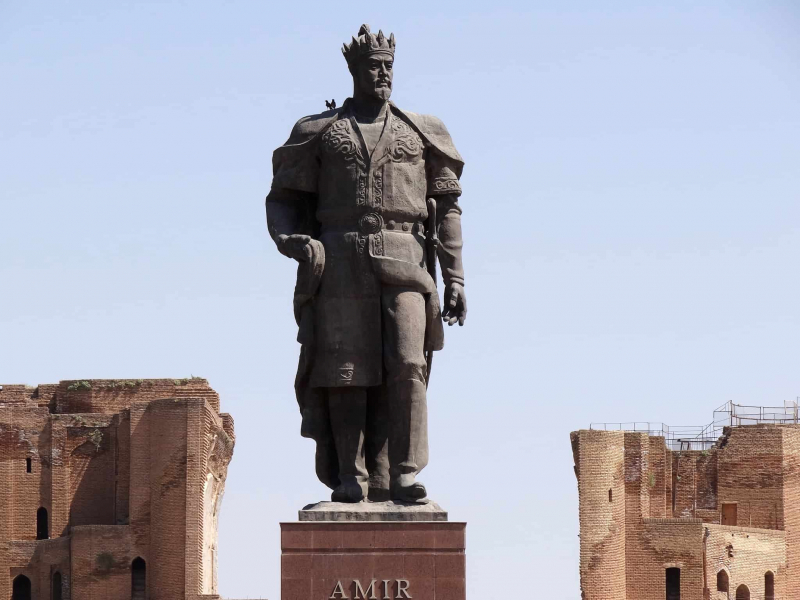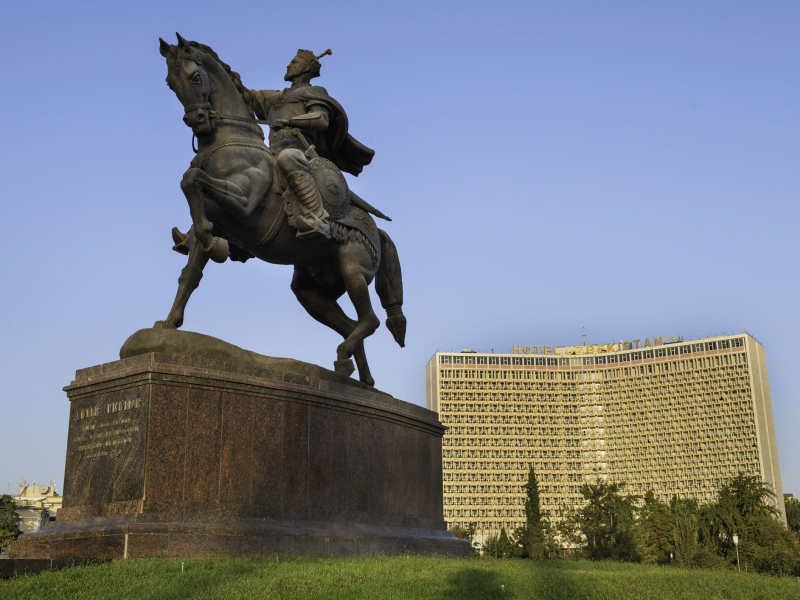Timur
Timur (9 April 1336 - 17-19 February 1405), later Timūr Gurkānī, was a Turco-Mongol conqueror who founded the Timurid Empire in and around modern-day Afghanistan, Iran, and Central Asia, becoming the Timurid dynasty's first ruler. He is widely regarded as one of history's greatest military leaders and tacticians, as well as one of the most brutal. Among the most important historical figures in Uzbekistan, Timur is also regarded as a great patron of art and architecture, as he interacted with intellectuals such as Ibn Khaldun, Hafez, and Hafiz-i Abru, and his reign introduced the Timurid Renaissance.
Timur, who was born on April 9, 1336, into the Barlas confederation in Transoxiana (modern-day Uzbekistan), gained control of the western Chagatai Khanate by 1370. From there, he led military campaigns across Western, South, and Central Asia, the Caucasus, and Southern Russia, defeating the Khans of the Golden Horde, the Mamluks of Egypt and Syria, the emerging Ottoman Empire, and the late Delhi Sultanate of India, and emerging as the most powerful ruler in the Islamic World.
Timur was the last of the great nomadic conquerors of the Eurasian Steppe, and his empire laid the groundwork for the rise of the more structured and long-lasting Islamic gunpowder empires in the 16th and 17th centuries. Timur was of Turkic and Mongol descent, and, while not a direct descendant on either side, he shared a common ancestor with Genghis Khan on his father's side.
According to Beatrice Forbes Manz, "in his formal correspondence Temur continued throughout his life to portray himself as the restorer of Chinggisid rights. He justified his Iranian, Mamluk, and Ottoman campaigns as the re-imposition of legitimate Mongol control over lands taken by usurpers." Timur used Islamic symbols and language to legitimize his conquests, referring to himself as the "Sword of Islam." He supported educational and religious institutions. During his lifetime, he converted nearly all of the Borjigin leaders to Islam. Timur declared himself a ghazi after decisively defeating the Christian Knights Hospitaller at the Siege of Smyrna. By the end of his reign, Timur had gained complete control over the remnants of the Chagatai Khanate, the Ilkhanate, and the Golden Horde, and even attempted to restore the Yuan dynasty in China.
Timur's armies were multi-ethnic and feared throughout Asia, Africa, and Europe, large parts of which he laid waste. Scholars estimate that his military campaigns killed 17 million people, amounting to about 5% of the world population at the time.
Timur was the grandfather of Ulugh Beg, the Timurid sultan and astronomer who ruled Central Asia from 1411 to 1449, and the great-great-great-grandfather of Babur (1483-1530), the founder of the Mughal Empire, which ruled almost the entire Indian subcontinent at the time.







